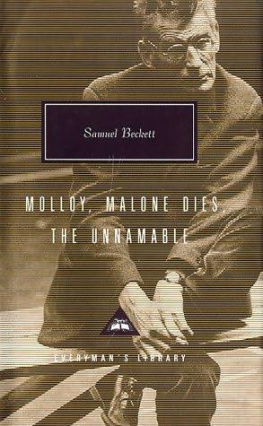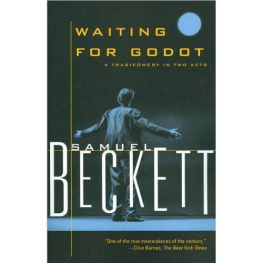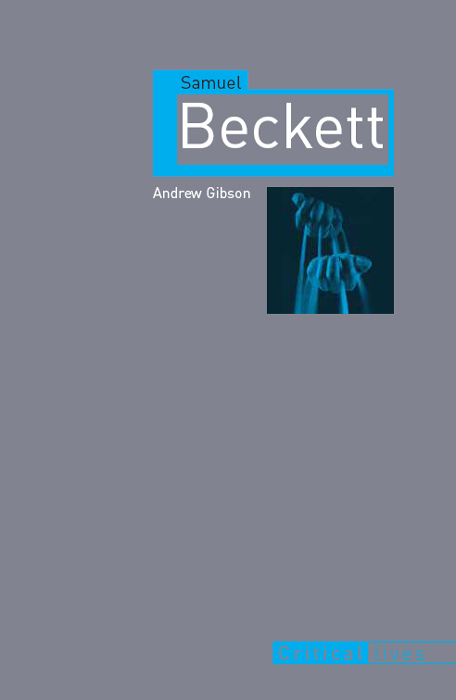Samuel Beckett
Andrew Gibson

REAKTION BOOKS
Titles in the series Critical Lives present the work of leading cultural figures of the modern period. Each book explores the life of the artist, writer, philosopher or architect in question and relates it to their major works.
In the same series
Jean Genet
Stephen Barber
Michel Foucault
David Macey
Pablo Picasso
Mary Ann Caws
Franz Kafka
Sander L. Gilman
Guy Debord
Andy Merrifleld
Marcel Duchamp
Caroline Cros
James Joyce
Andrew Gibson
Frank Lloyd
Wright Robert McCarter
Jean-Paul Sartre
Andrew Leak
Noam Chomsky
Wolfgang B. Sperlich
Jorge Luis
Borges Jason Wilson
Erik Satie
Mary E. Davis
Georges Bataille
Stuart Kendall
Ludwig Wittgenstein
Edward Kanterian
Octavio Paz
Nick Caistor
Walter Benjamin
Esther Leslie
Charles Baudelaire
Rosemary Lloyd
Jean Cocteau
James S. Williams
Sergei Eisenstein
Mike OMahony
Salvador Dal
Mary Ann Caws
Simone de Beauvoir
Ursula Tidd
Edgar Allan
Poe Kevin J. Hayes
Gertrude Stein
Lucy Daniel
Pablo Neruda
Dominic Moran
To the Kiberds
Published by Reaktion Books Ltd
33 Great Sutton Street
London ECIV ODX, UK
www.reaktionbooks.co.uk
First published 2010
Copyright Andrew Gibson 2010
The right of Andrew Gibson to be identified as Author of this Work has been asserted by him in accordance with the Copyright, Design and Patents Act 1988.
All rights reserved
No part of this publication may be reproduced, stored in a retrieval system, or transmitted, in any form or by any means, electronic, mechanical, photocopying, recording or otherwise, without the prior permission of the publishers.
Page references in the Photo Acknowledgements and Index match the printed edition of this book.
Printed and bound in Great Britain
by CPI Antony Rowe, Chippenham, Wiltshire
British Library Cataloguing in Publication Data
Gibson, Andrew, 1949
Samuel Beckett. (Critical lives)
1. Beckett, Samuel, 19061989.
2. Dramatists, Irish 20th-century Biography.
I. Title II. Series
822.912- DC 22
ISBN: 978 1 86189 517 2
Contents
Nor can there be work so great
As that which cleans mans dirty slate.
W.B.Yeats
Abbreviations
WORKS
| CDW | Complete Dramatic Works |
| CP | Collected Poems |
| CSP | Complete Shorter Prose 19291989 |
| DFMW | Dream of Fair to Middling Women |
| DI | Disjecta |
| EAG | En attendant Godot |
| GD | German Diaries |
| ISIS | Ill Seen Ill Said |
| MPTK | More Pricks than Kicks |
| MU | Murphy |
| TR | Trilogy: Molloy, Malone Dies, The Unnamable |
| WH | Worstward Ho |
Except where indicated, all translations of secondary literature in French and German are my own, as are translations from the French texts in Disjecta.
Introduction: Fuck Life
In one of Becketts late plays, we encounter a haunting figure. A prematurely old woman with famished eyes sits rocking in a rocking-chair. A voice speaks, telling her the story of a woman whose vain hope of human contact led her to the rocking-chair in which her mother sat and rocked till her end came ( CDW , p. 440). There she sat down and rocked herself,
saying to the rocker
rock her off
stop her eyes
fuck life
stop her eyes
rock her off
rock her off ( CDW , p. 442)
The play ends with these lines.
Fuck life is not a sentiment ever likely to win assent from biographers. Obviously and by definition, biography can hardly accommodate it. Biography is necessarily affirmative. The assumption that life has value, that individual lives deserve monuments, substantial and often bulky tributes, is intrinsic to the genre. Furthermore, the life that has value is specific in kind. It is life as it has already been lived, life as grasped in retrospect. That the subject of the biography might for instance be a writer who conceives of his or her art as a criticism of life, as a mode of speculation, an enquiry into prospects not retrospects, makes no difference to biographical discourse. It is presumably better to have biographies of, say, Swift, Blake, Rimbaud, Artaud and Woolf than not to have them. Yet one might argue all the same that, however close or sympathetic their biographers to these writers, biography necessarily sets its face against the most urgent admonitions of their art. In this respect, modern biography might even seem to have repeatedly collided with modern art, stoutly resisting its implications.
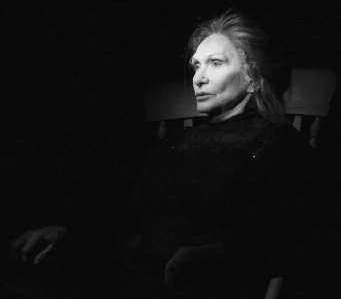
Fuck life: Sin Phillips in Rockaby at the Barbican Pit, London, 2006.
This has been precisely the case with Samuel Beckett. The biographies proceed in the opposite direction to his writings. For reasons that still puzzle us, Becketts art repeatedly turns towards minima. James Knowlsons widely and rightly lauded, authorized, vast and fact-crammed life amounts to 872 pages. At 646 pages, Anthony Cronins competitor volume is hardly much more modest. On the one hand, Knowlson and Cronins biographies are essential reading. Indeed, they complement each other, Cronins grasp of the Irish Beckett and his imaginative feeling for the miserable extravagance of his subject leavening Knowlsons awesome meticulousness, his exemplary scholarly care. I am humbly indebted to both throughout this short account. On the other hand, it seems to me to be well worth trying to write something more like a minimalist life of Beckett, by way of closing the gap between the biographical project and his own. What does Becketts life look like if narrated in more Beckettian terms?
Beckett wrote of humanism that it was a word that one reserves for the times of the great massacres ( DI , p. 131). He repeatedly stripped his characters of the attributes held most to distinguish man as lord of creation. His works resound with indictments of humanist self-aggrandizement. He sees humanism as rooted in a will to be pleased with oneself. His jibes at its expense range from the scathing to the comic to the more or less mildly ironical. Its human, says the Unnamable, a lobster couldnt do it ( TR , p. 375). Yet, at the same time, he never seriously lapses into the brutal repudiation of common humanity that so marred the work of certain contemporaries, like Cline (whose novels Beckett much admired). He merely understood very well that humanism has little to do with human beings. So what happens if one forsakes the familiar humanist conspectus and tries to write a biography of Beckett without automatically and everywhere placing the self-evidently treasurable, unique human being at its centre? What happens if we conceive of Beckett as, rather like Giorgio Agamben, re-imagining the human thing? I hope to provide at least one possible answer to these questions in what follows.


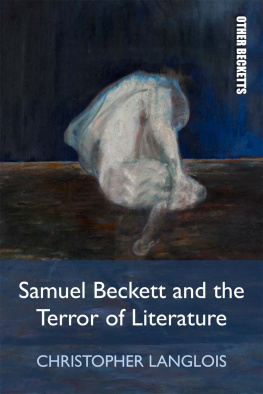
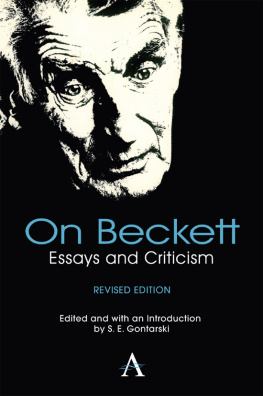
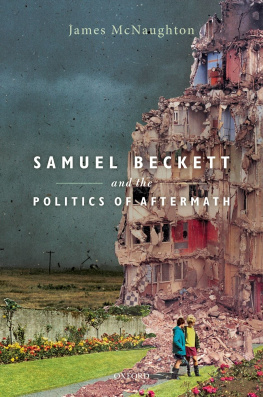
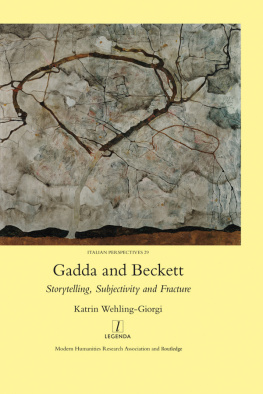
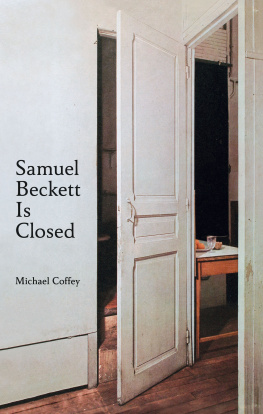
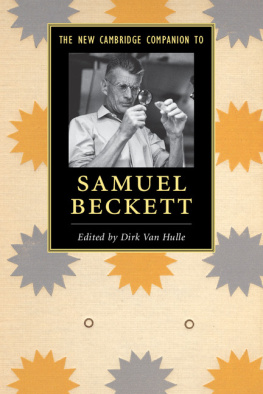
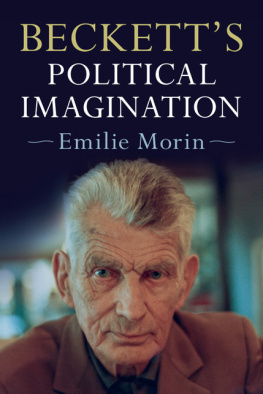
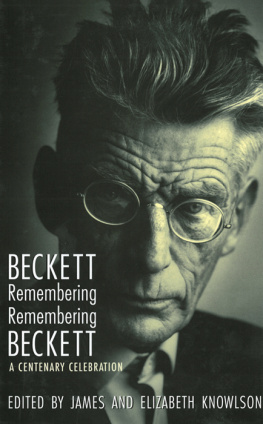
![Samuel Beckett [Samuel Beckett] - The Complete Dramatic Works](/uploads/posts/book/72751/thumbs/samuel-beckett-samuel-beckett-the-complete.jpg)
